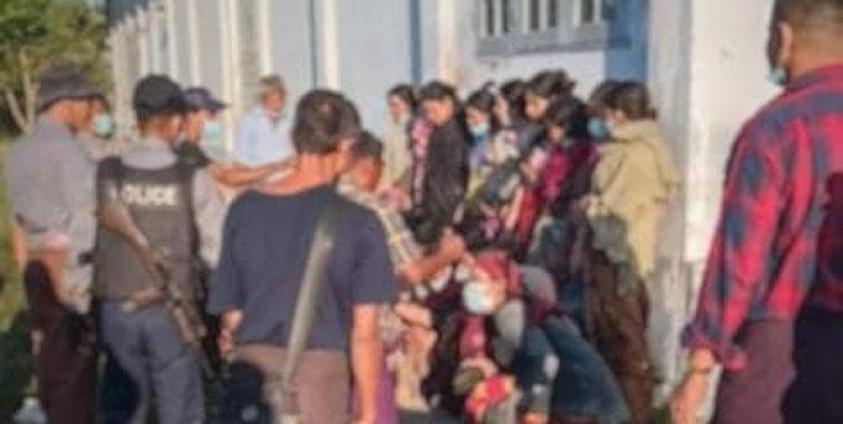According to locals, 48 Rohingya refugees from Rakhine State were arrested around 6 a.m. on 8 February in Kyauktan Township, Yangon.
They were arrested under a bridge connecting Wal Gyi and Panchaung villages, 10 miles from Kyauktan Township. They were traveling on a motor boat from Rakhine State to Malaysia via Yangon. They are currently detained at the former a COVID-19 centre in Kyauktan Township.
Of the 48 detainees, two were boat drivers, 37 were women and nine were men, according to a local person.
"Since the coup, the military council has tightened its grip over significant international crimes that it has been carrying out for decades, including systemic crimes against the Rohingya. These are the crimes that the international court is investigating. It also goes against the Interim Order of the International Court of Justice," Aung Kyaw Moe, an adviser to the National Unity Government and the Ministry of Human Rights, informed Mizzima.
“The majority of the detainees were women and children. The harsh treatment of many women and children in prison is inexcusable. It also breaches Myanmar's signing of the convention of the rights of the child, CRC," he added.
The authorities ordered the captured Rohingya to be returned to their home state of Rakhine.
When Aung Sn Suu Kyi’s National League for Democracy (NLD) was in power captured Rohingya were returned to their home state of Rakhine, but since the coup when Rakhine people are arrested the junta troops detain them, confiscate their money and valuables, such as jewellery and imprison them.
"We will cooperate with the international community to guarantee that those responsible for crimes against humanity and genocide are brought to justice under the international justice system," said Aung Kyaw Moe.
Last January, the Military Council arrested 62 Rohingyas in Shwepyithar, just north of Yangon and sentenced them to two years of prison with hard labour. 14 of the 62 were under the age of 15 when they were arrested and they were sent to the Ngat Aww San Youth Detention Centre.
Following the military coup, approximately 300 Rohingya internally displaced people (IDPs) from Rakhine or Arakan State have been detained and sentenced to hard labour and imprisonment under the Ministry of Immigration’s illegal border crossing law.







